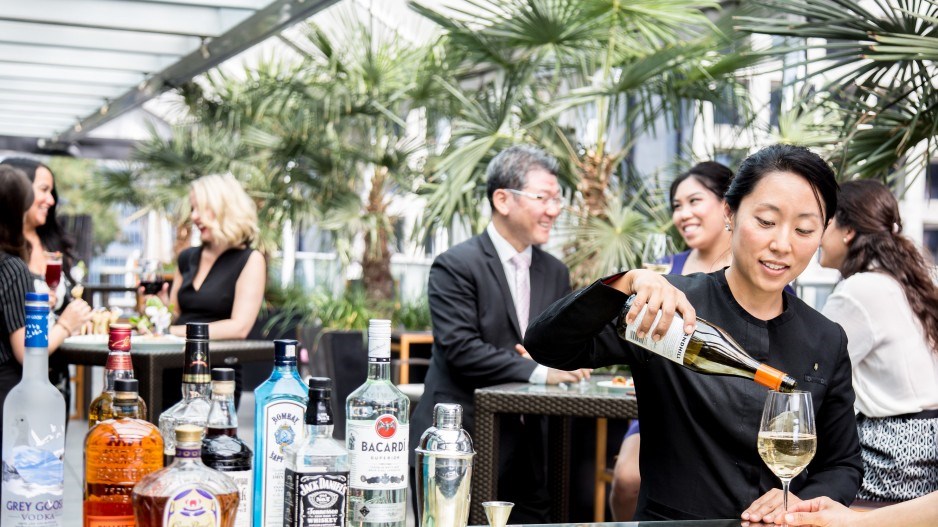The B.C. government will allow bars and restaurants to buy alcohol at wholesale prices in a bid to help them survive declines in revenue prompted by the COVID-19 pandemic.
The move may, however, turn out to be temporary. The government said June 16 that the initiative will be in place between the end of July until March 31, 2021, when the program will be reviewed.
"This is the most important and significant liquor policy change in a generation, BC Restaurant and Food Services Association CEO Ian Tostenson wrote on LinkedIn.
He told Business in Vancouver that he is not concerned with the potential that the policy change will be temporary.
"I think it's prudence," Tostenson said. "Obviously we would want this to go beyond March 2021, but I think the government wants to make sure, because there's a cost to this, that it is working for everybody."
Attorney General David Eby announced the move and explained that the hospitality industry has been one of the hardest hit sectors during the pandemic, throwing many of the more than 190,000 British Columbians who work within the sector out of work.
"Offering a wholesale discount for licensees was something we were exploring before COVID-19, but after the onset of the pandemic we accelerated efforts in order to support these community businesses as they try to find their feet," he said in a news release.
The discounted prices for alcohol will be in effect for all hospitality licensees – or restaurants, bars and pubs. All of those businesses currently must pay full retail price for alcohol before they then mark up prices to earn a profit on their sales to customers.
Some restaurant owners have been vocal advocates for this change.
Glowbal Group owner Emad Yacoub recently told BIV that he has laid off about 650 of his 850 staff. Buying alcohol at a wholesale prices would enable him to bring back at least 50 workers, he estimated, basing that on a 25% discount on $200,000 spent on alcohol per month for his nine restaurants.
It is unclear exactly what wholesale discount the government would provide restaurants. Former Premier Christy Clark's administration scrapped the system where there were a set of different wholesale discounts on a pre-determined retail price. Instead, former Attorney General Suzanne Anton was in charge of creating a system that would work up to a wholesale price. Private and government stores could then provide their own mark-up to create their own retail price.
Most in the industry expect that if restaurants were able to buy alcohol at the same wholesale price as liquor stores, that the saving would be about 20%, Alliance of Beverage Licensees executive director Jeff Guignard told BIV.
"Most places spend about 25% to 30% of their overall expenses on liquor, so at the end of the day, this one change of reducing those expenses by 20% means 5%, 6% or more to their bottom line," he said.
Liberty Wine Merchants owner Robert Simpson concurred with Guignard's estimate that retail liquor prices tend to be around 20% above the government wholesale price. He said the exact saving depends on the product, and whether there's a promotional price for the product.
Restaurant owners still must buy directly from the British Columbia Liquor Distribution Branch (BCLDB), and not from retailers such as Simpson. He would like to see that change, given that his Granville Island store, for example, is near many restaurants.
If private retailers were able to sell directly to restaurants, the retailers would likely charge a special rate slightly above the wholesale price, and provide perks to the restaurant, such as allowing transactions for a single bottle, or less than a full case, Simpson said. The BCLDB tends to require that all restaurant purchases be for full cases, he added.
Other government work underway is on adopting other recommendations in a report created by the government's Business Technical Advisory Panel (BTAP).
Mark Hicken, who chaired the panel and wrote a report with recommendations called the government's move to allow wholesale pricing even on a temporary basis to be "groundbreaking" and necessary.
"They really need this right now and it is absolutely critical for their economics and recovery," Hicken said. "Obviously, I'm hopeful that it will continue into the future."
The government said that it is still working on implementing some other recommendations in the BTAP report, including ones that would streamline systems and reduce costs. One change, for example, could be that some alcohol products be shipped directly to retail stores or restaurants without having to be warehoused by the government.




